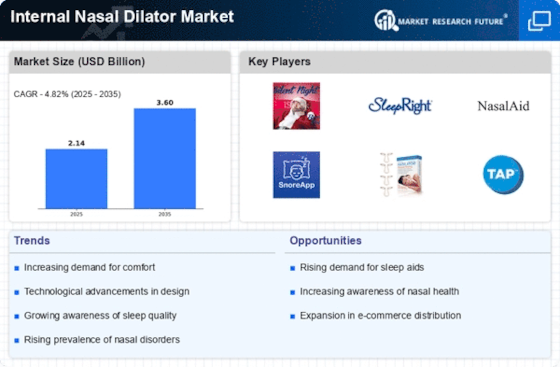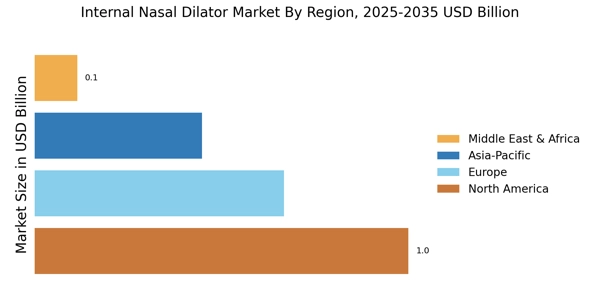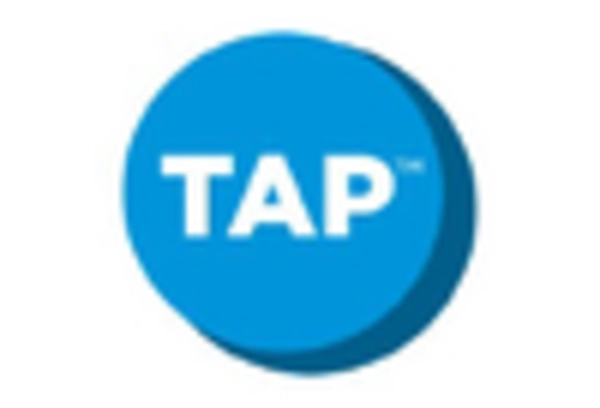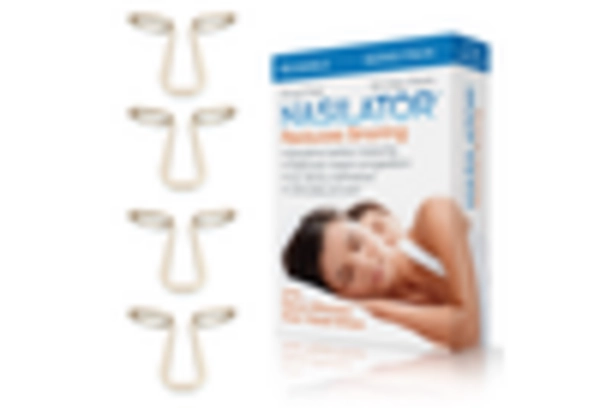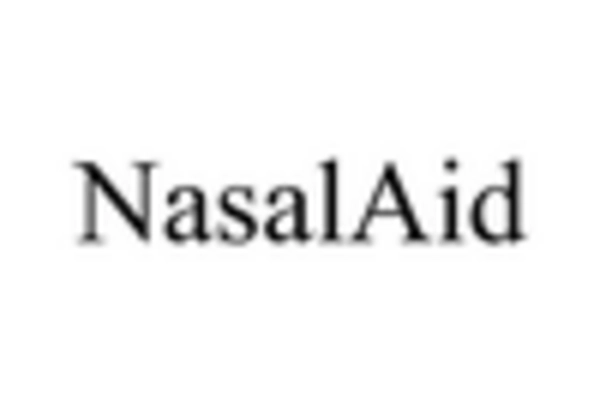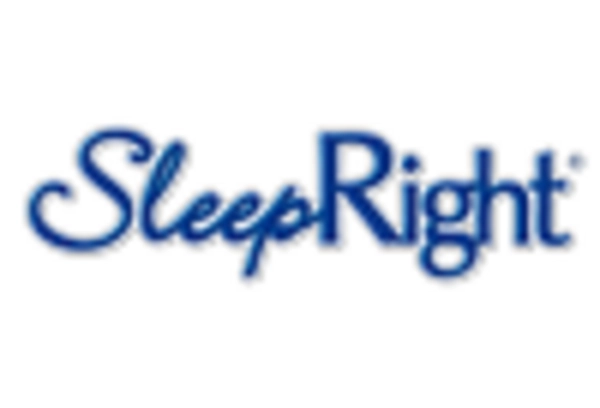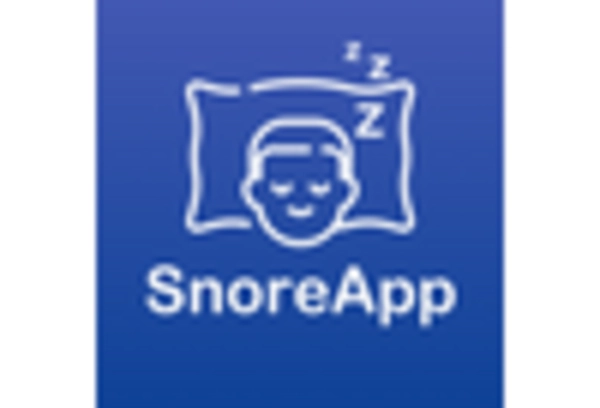Rising Demand for Sleep Aids
The increasing demand for sleep aids is emerging as a significant driver for the Internal Nasal Dilator Market. As sleep disorders become more prevalent, individuals are actively seeking solutions to improve their sleep quality. Internal nasal dilators are gaining recognition as effective tools for enhancing airflow during sleep, thereby reducing snoring and improving overall restfulness. Market trends suggest that the growing awareness of the importance of sleep health is likely to propel the Internal Nasal Dilator Market forward. Additionally, partnerships between manufacturers and sleep clinics may further enhance product visibility and accessibility, contributing to market growth.
Technological Advancements in Product Design
Technological advancements in product design and materials are playing a crucial role in shaping the Internal Nasal Dilator Market. Innovations such as the development of flexible, hypoallergenic materials and ergonomic designs are enhancing user comfort and effectiveness. These improvements not only attract new customers but also encourage existing users to upgrade to newer models. The Internal Nasal Dilator Market is likely to see increased competition as manufacturers strive to incorporate cutting-edge technology into their products. Market analysis indicates that companies investing in research and development are more likely to capture a larger share of the market, as consumers become more discerning about product quality and performance.
Increasing Prevalence of Respiratory Disorders
The rising incidence of respiratory disorders, such as sleep apnea and chronic obstructive pulmonary disease, appears to be a primary driver for the Internal Nasal Dilator Market. As more individuals seek effective solutions to alleviate breathing difficulties, the demand for internal nasal dilators is likely to increase. According to recent health statistics, millions of people are affected by these conditions, leading to a heightened awareness of available treatment options. This trend suggests that the Internal Nasal Dilator Market could experience substantial growth as healthcare providers recommend these devices as non-invasive alternatives to more invasive procedures. Furthermore, the increasing focus on improving quality of life for patients with respiratory issues may further bolster market expansion.
Expanding E-Commerce Platforms for Health Products
The expansion of e-commerce platforms dedicated to health products is significantly impacting the Internal Nasal Dilator Market. As consumers increasingly turn to online shopping for convenience and accessibility, the availability of internal nasal dilators through various online channels is likely to rise. This trend not only broadens the market reach for manufacturers but also provides consumers with a wider selection of products. Data indicates that online sales of health-related items have surged, suggesting that the Internal Nasal Dilator Market could capitalize on this shift. Furthermore, the ability to compare products and read reviews online may enhance consumer confidence, driving further sales growth.
Growing Interest in Non-Invasive Treatment Options
There is a notable shift towards non-invasive treatment options in the healthcare sector, which significantly influences the Internal Nasal Dilator Market. Patients are increasingly favoring solutions that do not require surgical intervention, as they often entail fewer risks and shorter recovery times. This trend is particularly evident in the management of nasal congestion and sleep-related breathing disorders. The Internal Nasal Dilator Market stands to benefit from this growing preference, as these devices provide a simple yet effective means of enhancing airflow without the need for complex procedures. Market data indicates that the demand for non-invasive solutions is on the rise, suggesting a favorable environment for the growth of internal nasal dilators.


